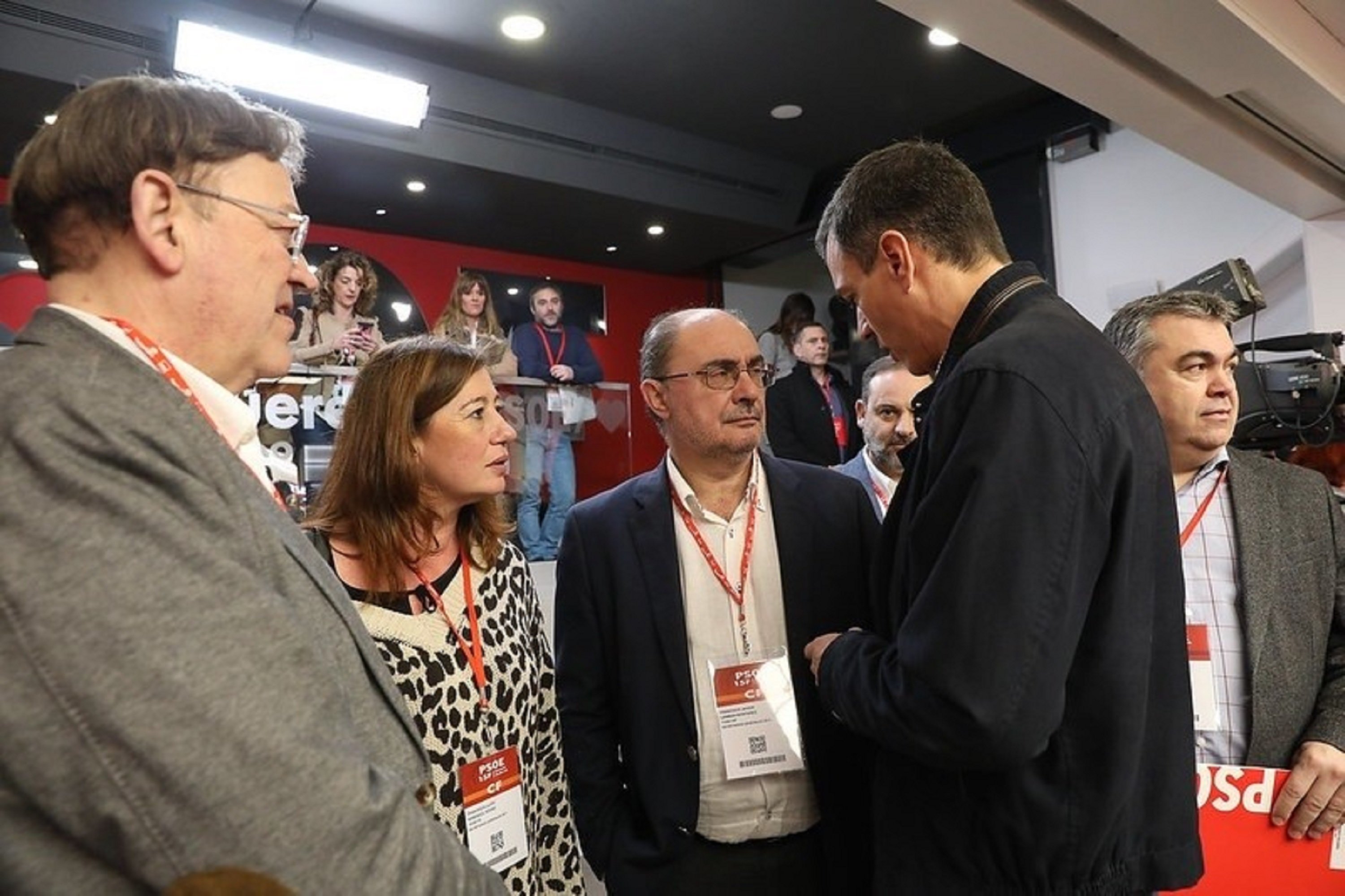Spanish socialist party (PSOE) regional leaders have expressed their suspicion of Spanish prime minister and socialist party leader Pedro Sanchez's commitment to dialogue with Catalan pro-independence parties. Some regional presidents, such as Aragon region's Javier Lambán and Castilla-La Mancha region's Emiliano García-Page, have requested no favourable treatment for pro-independence stakeholders to the detriment of other territories.
Page considers that, for now, there is "better will" to this dialogue on the Spanish government side than on the Catalan institutions side, and says it is "logical" that the reform of the Criminal Code, raised by the Catalan government, is not taken to this negotiating table because it is "common sense" for those who have committed the crimes of sedition and rebellion, "not to be judge and judged".
Here's the translation of what Castilla-La Mancha region president Emiliano García-Page says in the video:
"Much dialogue is needed in Spain, in all aspects. In state matters, [the dialogue is to be] cross-cutting, not bilateral, but as wide as possible. We can only discard those who mean hatred or confrontation among the Spanish. If pro-independence parties let themselves be helped, we can take them out of the dead-end street they got themselves in. [Regarding VAT regulations for the Spanish autonomous communities,] we shall defend the best financing, we have been lagging behind schedule in relation to autonomous communities financing and we need it. It is a matter of education, health and social services, not a matter of launching rockets to the moon. [As for the Committee meeting], it went well. We are hoping that these coming years will be good for the majority of Spanish people, within a clear reaffirmation in the Spanish constitution, which is what Pedro Sánchez has said."
The president of Aragon, Javier Lambán, who left the Committee meeting as soon as Sanchez's speech ended, has expressed similar arguments to those of Page about Catalonia. Pedro Sánchez, in turn, anticipating some regional leaders' concerns regarding dialogue with Catalonia, has promised that attention to the problem of Catalonia will not be detrimental to the needs of other territories.
Lambán, who did not stay for the debate after the Committee meeting, has turned to the media in response to Sánchez. He said that "there is not a single president" of a Spanish autonomous community "willing to accept" an "economic reward" to those who have been "utterly disloyal" with the Spanish state, in reference to Catalan pro-independence politicians.
He has also warned that he will not admit "any kind of appeasement policy" with Catalonia which is done "at the expense of the financing" that the people of Aragon require.
Catalan socialist leader Miquel Iceta considers it to be a crisis "difficult to solve"
Iceta has also lashed out at all those who see the Catalan socialists aligned with pro-independence positions. The first secretary of the Catalan Socialist Party (PSC) recalled that his party accumulates 59% of acts of vandalism against party venues in Catalonia. "Therefore, when some brainless tells you that we are very much in touch with the pro-independence movement, remind them of this figure", he said.
The Catalan leader has warned that the current division in Catalonia between pro-independence and anti-independence people is "impossible to solve, because it has to do with identity and feelings."
In this context, he explained that he aspires to lead the Catalan government "to try to straighten this situation, which will take some time, but that effort has no chance of success (...) without a committed and courageous Spanish government" like Pedro Sánchez's, to whom he has requested that, in his meeting on Monday with the leader of the Spanish Popular Party (PP), Pablo Casado, he should ask him to "fight and isolate" the far-right like German chancellor Angela Merkel has done.
Andalusia's Susana Díaz, Sánchez's biggest fan
Beyond Page and Lambán, there have been no more voices within the PSOE who have questioned this policy of appeasement in Catalonia. Not even the leader of the Andalusian socialists, Susana Díaz, whom some members of the Federal Committee have seen as "Sánchez's biggest fan" after years of confrontation.
In a statement to the press upon her arrival at the Committee meeting, Díaz said she felt "peace and confidence" that Sanchez "will always link dialogue to legality." At the end of the meeting, Diaz was particularly pleased before the press that Sanchez's first words were dedicated to farmworkers.

